The consensus was clear: AI is revolutionizing digital agencies by solving problems, boosting efficiency, and driving revenue. While tools like OpenAI's ChatGPT are popular, some agencies are innovating further by developing their own AI models tailored to their specific needs.
Here’s a summary of the key takeaways and insights from this forward-thinking event which definitely gave all those that attended a lot of food for thought, and made it clear that incorporating AI into the way agencies do business is the only way forward.
Can implementing AI lead to greater profit? Yes!
Despite the current financial climate and the well known fact that agencies worldwide are going through challenging times, those that have successfully incorporated AI into their business are thriving.
Elliott Botterill, founder of Botters Digital Growth Agency reported that his agency has used AI to achieve a 12x profit increase - yes, you read that correctly!
With the use of AI, his agency has been able to reduce customer onboarding times from two weeks to one hour; and social media video output has increased from two to ten videos daily. In addition, the Botters hyper-personalized lead follow-up process, automated through make.com, has achieved an 80% positive response rate.
It stands to reason that AI would produce positive results in an organization when implemented successfully. The agency industry is predominantly serviced-based so to get more output you generally need to employ more people, and therefore spend more money. If AI can easily automate and increase an agency’s output, the need for extra staff disappears without overloading those that are already there.
How AI is assisting digital agencies
AI is synonymous with speed, and agencies that use it are definitely experiencing significant improvements in their overall efficiency through AI integration. AI tools can help your agency achieve ...
- Fast production of quality ad copy and content
- Increased video production output
- Automated, hyper-personalized lead follow-up processes
- Quicker client onboarding
- Automatic data analysis generation
- Automation of repetitive tasks
- … and so much more
During his presentation, Peter Heneghan, Founder of the AI consultancy The Future Communicator showcased a press release that was written almost as fast as a Formula 1 pitstop, and which after it was written, was 95% complete and perfectly matched the client’s tone and brief.
There are countless ways that AI can be incorporated in the day-to-day running of an agency and if it’s new territory for you, there are AI consultants that can help pinpoint the areas of your business operations where AI will be most beneficial.
Peter and his team use several frameworks to help organizations systematically discover and evaluate opportunities for AI implementation. These involve:
- Identifying potential AI use cases within the business
- Evaluating the feasibility and value of each use case
- Prioritizing use cases based on their potential impact and alignment with business goals
Using such frameworks and starter ToolKits ensures that you have a solid understanding of how moving to AI will help your agency, and it will greatly assist with the next step - implementation.

Steps to get started with AI in your agency
There is currently no single playbook to follow when it comes to transforming your agency into an AI well-oiled machine, but there are a number of strategies to draw from.
- Educate and motivate your team: Start by educating your team about the benefits and applications of AI and fostering a culture of innovation to ensure that everyone is on board. Remember that change can be difficult, especially when it comes to new technology, and you need to ensure that your team sees AI as something positive and not a threat.
- Establish success criteria: Begin by defining clear objectives aligned with your business goals and identifying KPIs that will measure AI's effectiveness. Implement monitoring and reporting systems to continuously evaluate performance against these benchmarks, using tools like analytics dashboards and regular review meetings. Gathering qualitative feedback from team members and clients further enriches your understanding of AI's impact.
- Start small: Begin with small AI projects to test the waters and demonstrate value. This approach allows for manageable, incremental integration of AI and helps with the learning curve while reducing risk.
- Beta groups: This is an approach used by the team at WIX Studio which they kicked off internally with an ‘AI Hackathon’ involving their entire team. After the full team event, a beta group was formed, opportunities were recognised, and they started collaborating with partners like Freeflow.io to integrate AI seamlessly into their processes, as well as their service offerings. By introducing AI in this way the WIX team members were able to experiment with AI tools, iron out any bugs, and develop a group of power users who could assist with the broader roll-out and make the transition easier. Today WIX has various AI tools available for their developer community. Learn more about them here.
- Implement robust AI tools: Having robust, well-built, and well-trained AI tools and bots is crucial for effective integration. These tools can enhance your communication stack, streamline document creation, and improve content quality. Combining tools like Fireflies and ChatGPT can expedite document creation, while HeyGen, Speechify, and OpusAI can enhance video and audio content.
- Collaborate with AI partners: Partner with technology providers or AI experts to guide your AI adoption journey. This will make the journey a lot smoother, speed up its implementation, and ensure that AI is seamlessly integrated into your agency’s workflows.
- Invest in training and time for learning: Ensure your team is equipped with the necessary skills to leverage AI tools effectively. Schedule weekly or fortnightly catch ups for your team to come together to discuss any opportunities and challenges.
- Don’t forget the legals
The implementation of AI requires addressing compliance with data protection regulations, such as GDPR, and ensuring intellectual property rights are not violated. Agencies need clear policies to ensure responsible AI usage, safeguarding client data and maintaining compliance with intellectual property laws. AI consultants are well-versed when it comes to what is legal and ethical in the AI world so it’s important to enlist their services if you’re unsure on compliance.

What does AI adoption look like at grass roots level?
Elliott Botterill’s implementation approach is simple and systematic, and has been instrumental in helping his agency achieve its 12x profit increase.
Block out regular AI team sessions
Dedicate specific times for your team to focus solely on exploring and implementing AI-driven solutions. These sessions should be used to brainstorm how AI can optimize current workloads, experiment with new AI tools, and share findings and insights among team members.
They will also help ensure that the team remains updated with the latest AI advancements and how they can be applied to improve efficiency.
Reimagine processes
Get the team to assess current processes to identify where AI can add value and integrate AI into your existing workflows to make them more efficient and productive. This has a direct impact on time-consuming and repetitive tasks such as data analysis and customer support, and will drastically reduce manual efforts, enhance accuracy, and speed up processes, ultimately leading to higher productivity and better service delivery.
Relieving team members of mundane tasks will also enable them to do things that they find more fulfilling, as well as develop their skills.
Identify constraints
Understanding and identifying constraints within your agency is crucial for effective resource allocation. Constraints can include limited budget, lack of expertise, or insufficient data quality.
By acknowledging and addressing constraints, agencies can prioritize them and allocate resources more effectively, ensuring that AI initiatives are feasible and sustainable. This strategic allocation helps in overcoming hurdles that could otherwise impede the success of AI projects.
Test and validate
Regular testing and validation help in identifying any issues early on and making necessary adjustments before full-scale implementation. This ensures that the AI tools not only enhance efficiency but also maintain or improve the quality of outputs, leading to consistent and reliable performance.
Collect data on performance metrics, such as speed, accuracy, and user satisfaction. Validate these results against set benchmarks to ensure they meet the required standards.

Final thoughts
The message is clear: AI is here to stay, offering unprecedented opportunities for efficiency and growth.
The urgency for digital agencies to adopt AI cannot be overstated. The competitive landscape is rapidly evolving, and agencies that fail to embrace AI risk being left behind. By integrating AI into their day-to-day operations, agencies can unlock new potentials, build stronger client relationships, and continuously innovate their offerings. Embracing AI not only streamlines processes but also positions agencies to deliver exceptional value to their clients.
Thank you to Agency Hackers for running such an insightful event.




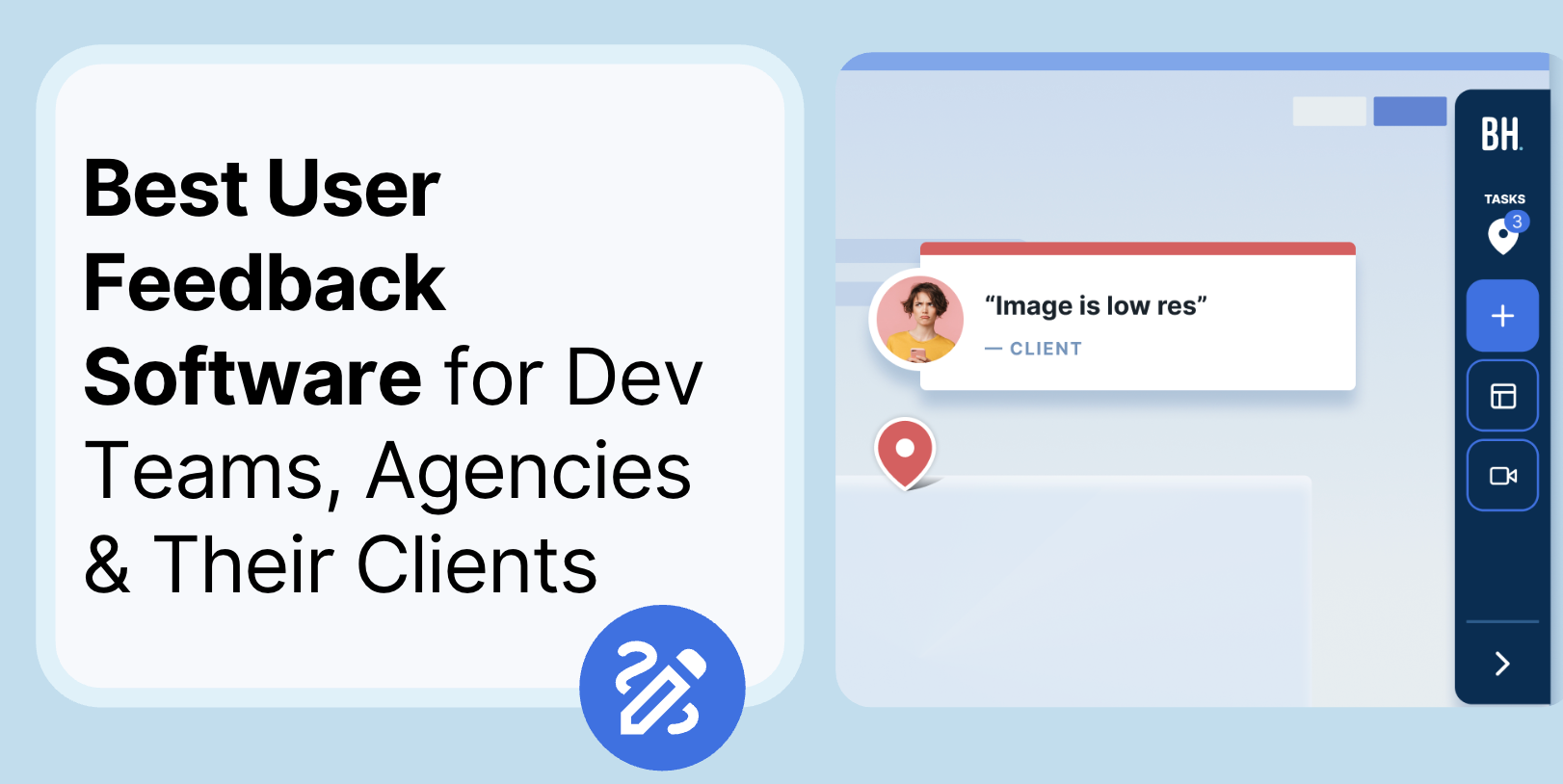


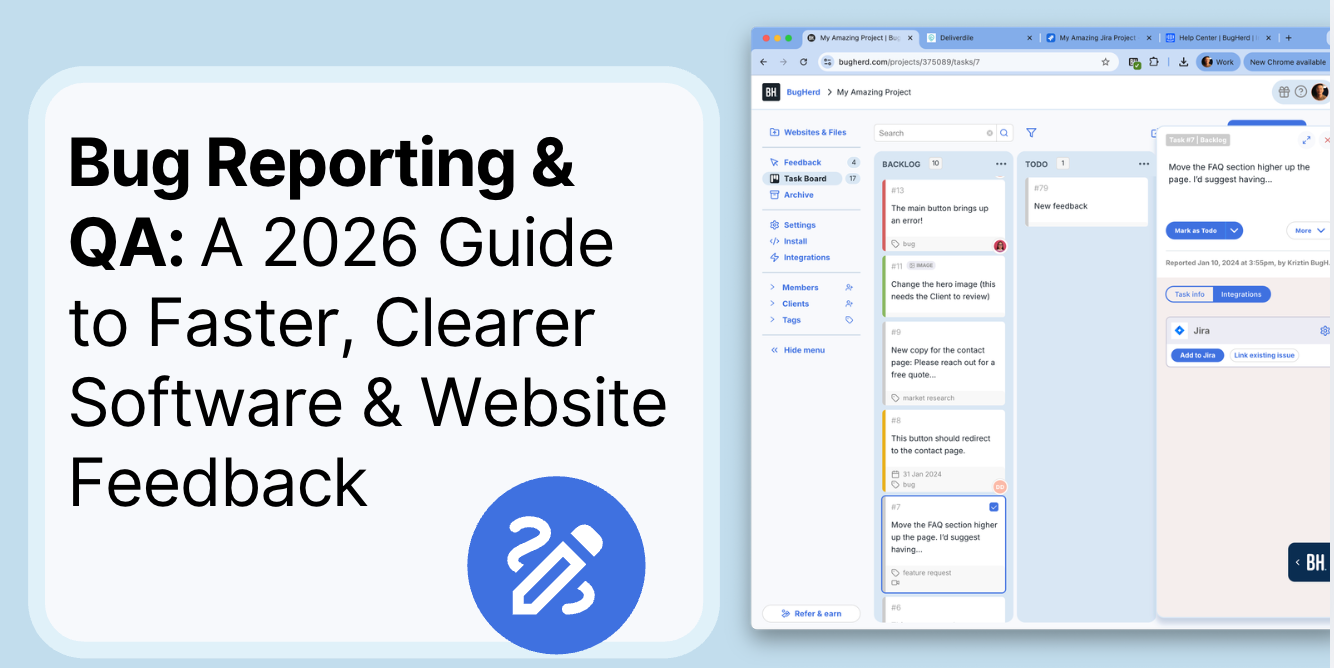

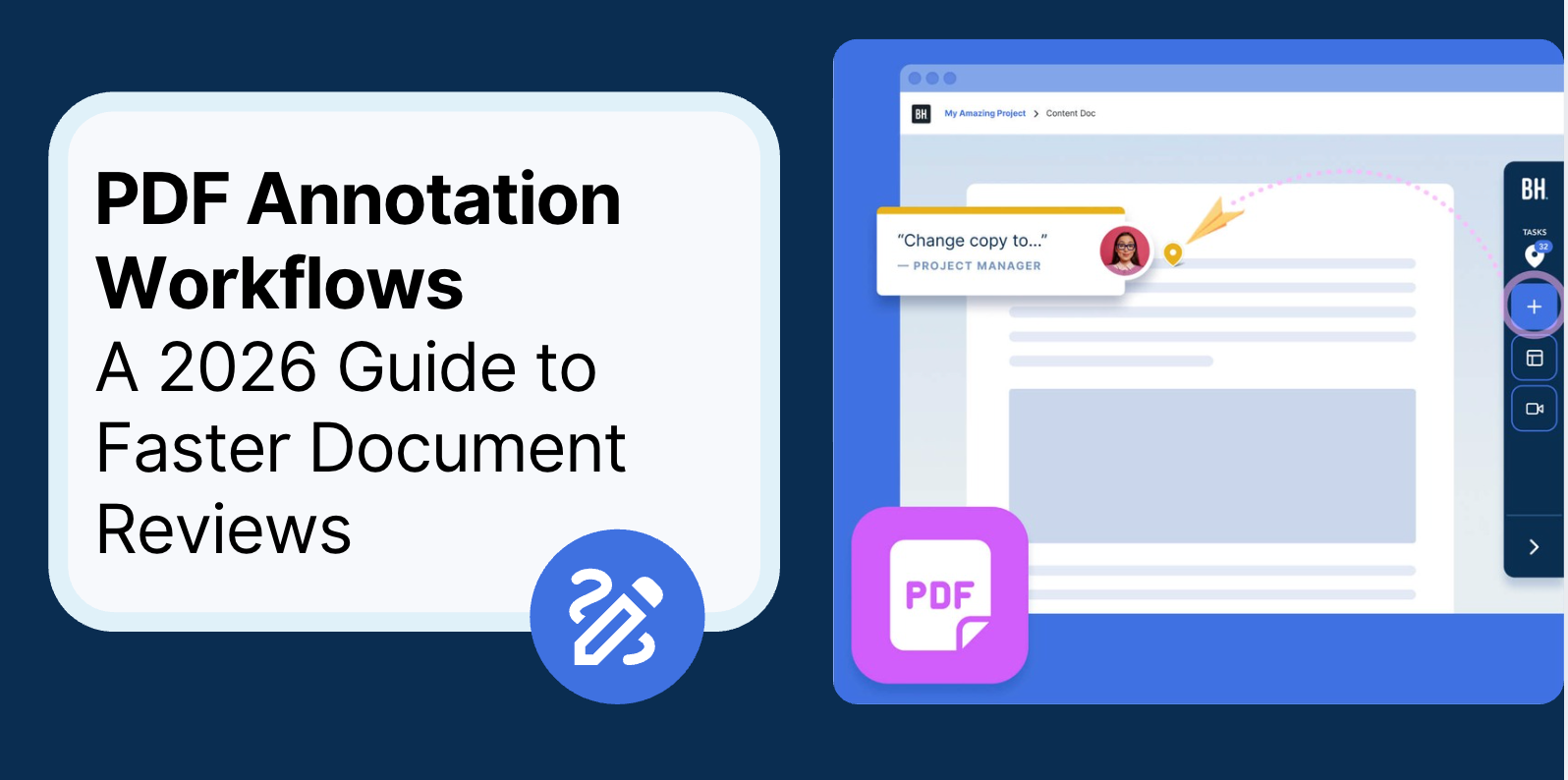
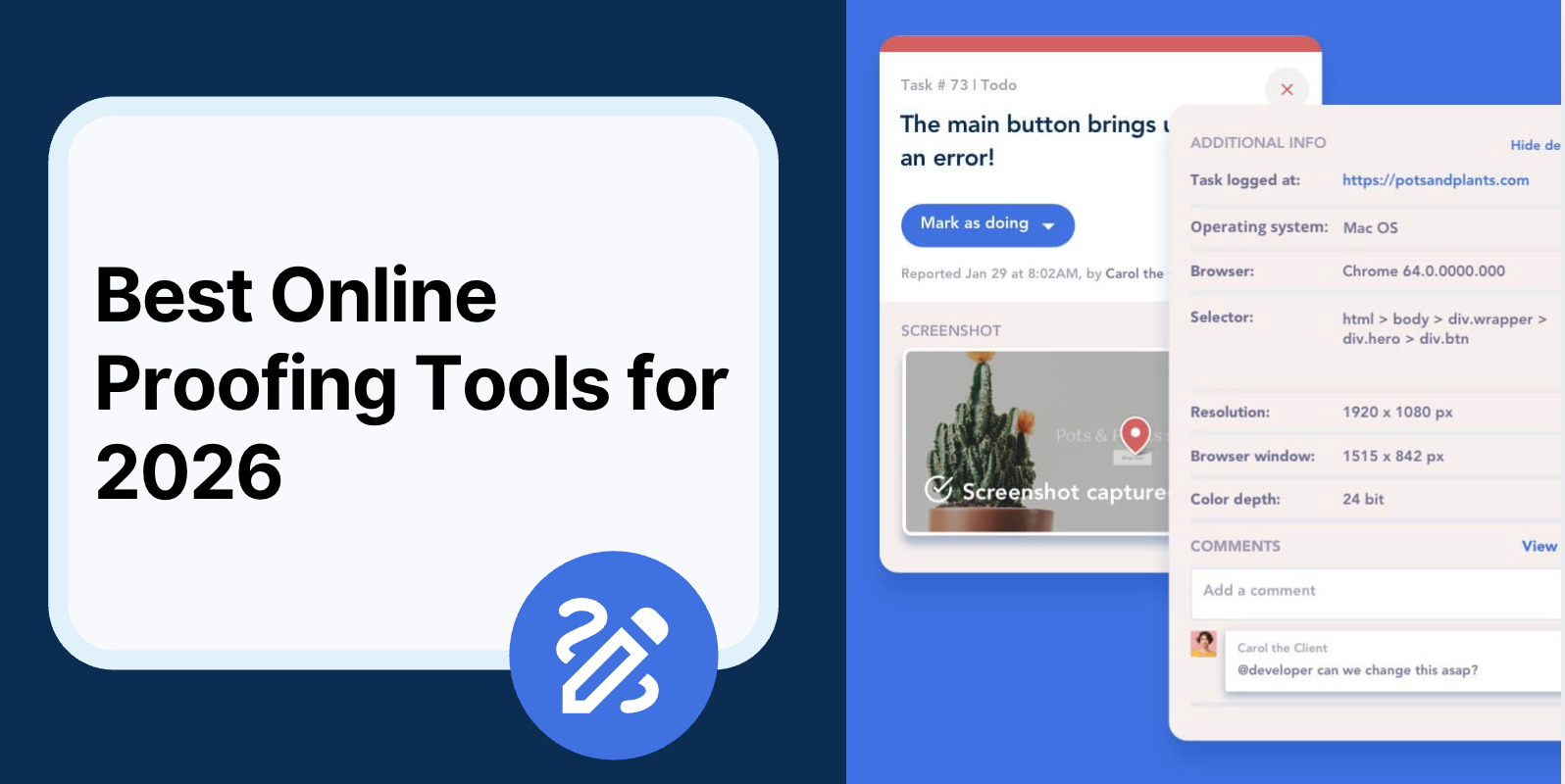
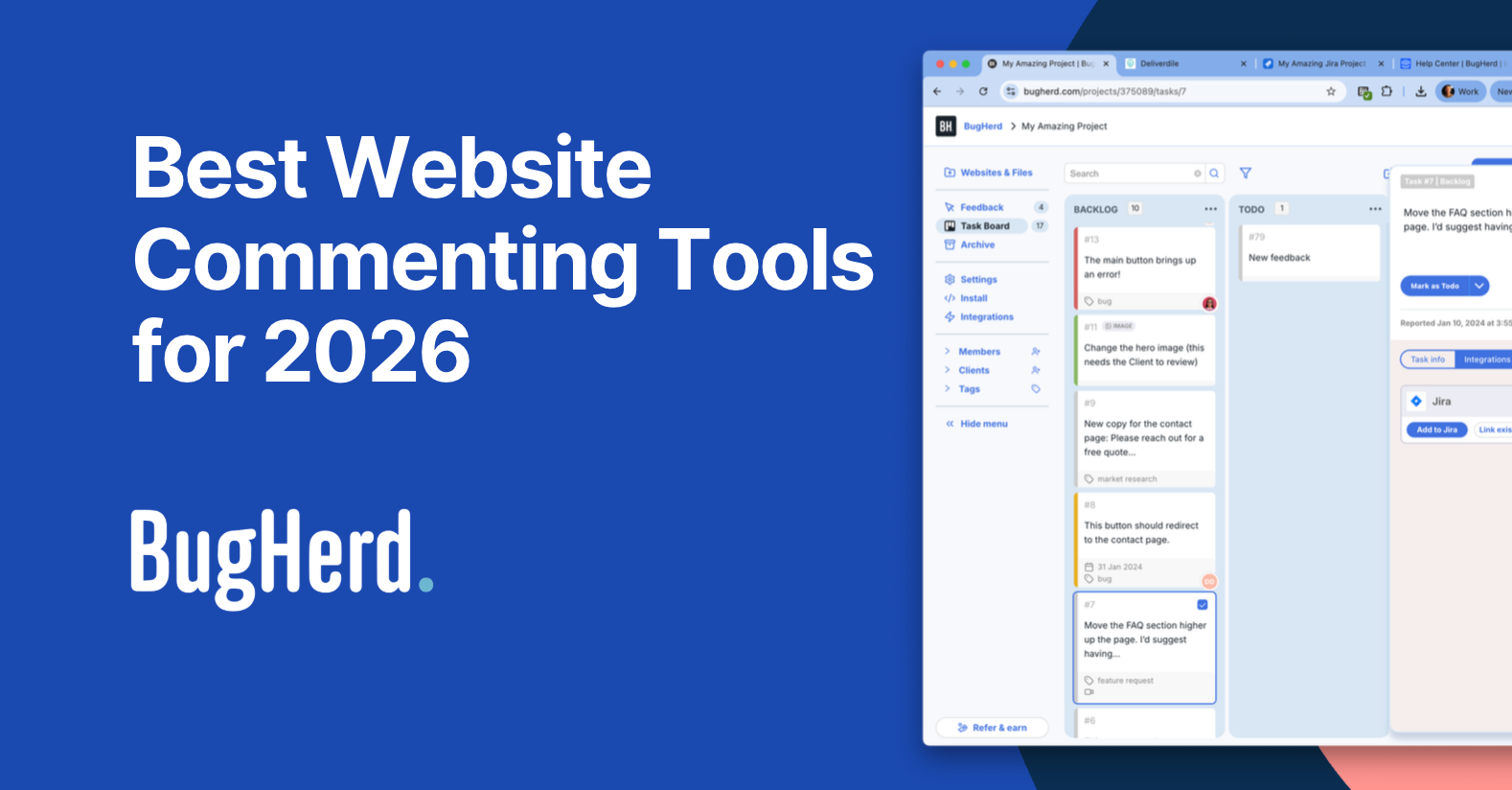
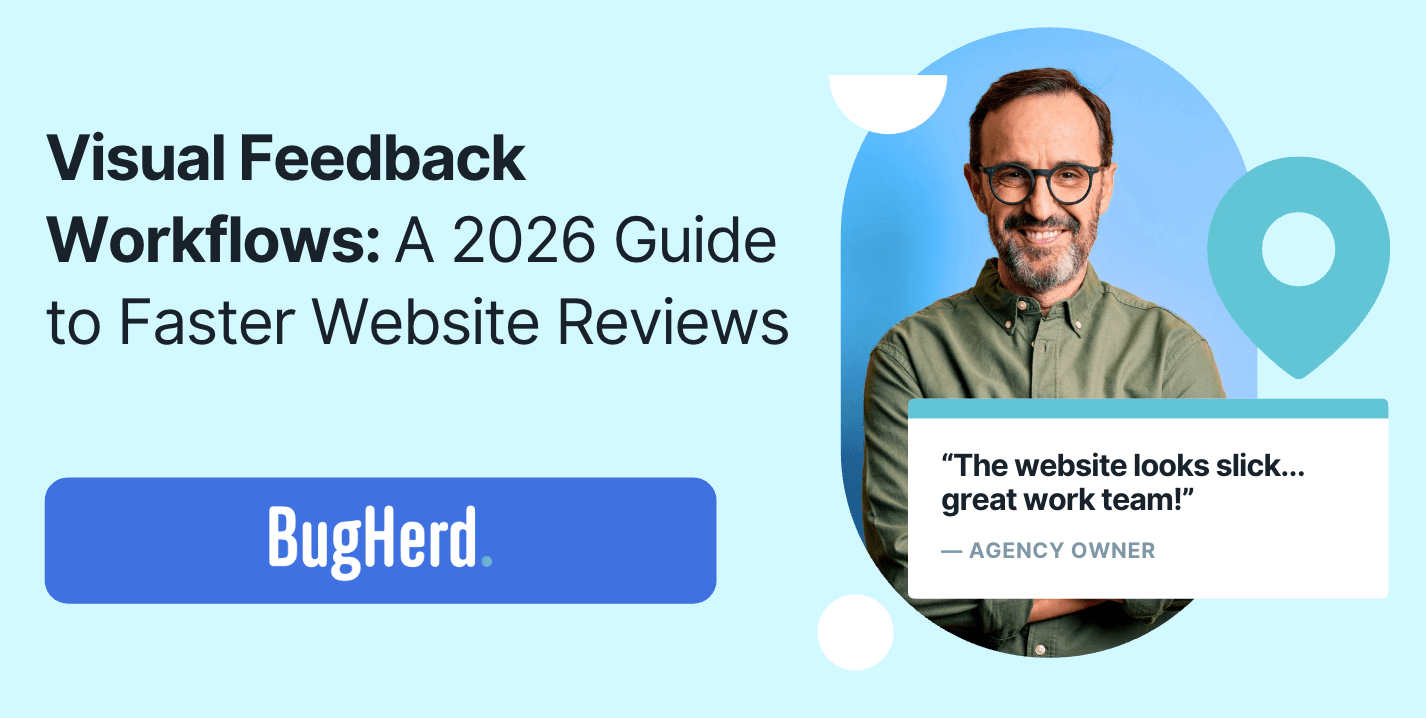



But don't just take our word for it.
BugHerd is loved by 10,000+ companies,
350,000+ users across 172 countries.
4.8/5
4.7/5
4.5/5
5/5
8.7/10
Sam Duncan 📱📏 🌱
@SamWPaquet
"@bugherd where have you been all my life??
We just migrated our bug tracking over from Asana and have at least halved our software testing time🪳👏📈. "
Ashley Groenveld
Project Manager
“I use BugHerd all day every day. It has sped up our implementation tenfold.”
Sasha Shevelev
Webcoda Co-founder
"Before Bugherd, clients would try to send screenshots with scribbles we couldn't decipher or dozens of emails with issues we were often unable to recreate."
Mark B
Developer
“A no-brainer purchase for any agency or development team.”
Kate L
Director of Operations
"Vital tool for our digital marketing agency.”
Paul Tegall
Delivery Manager
"Loving BugHerd! It's making collecting feedback from non-tech users so much easier."
Daniel Billingham
Senior Product Designer
“The ideal feedback and collaboration tool that supports the needs of clients, designers, project managers, and developers.”
Chris S
CEO & Creative Director
“Our clients LOVE it”
Emily VonSydow
Web Development Director
“BugHerd probably saves us
at least 3-4hrs per week.”